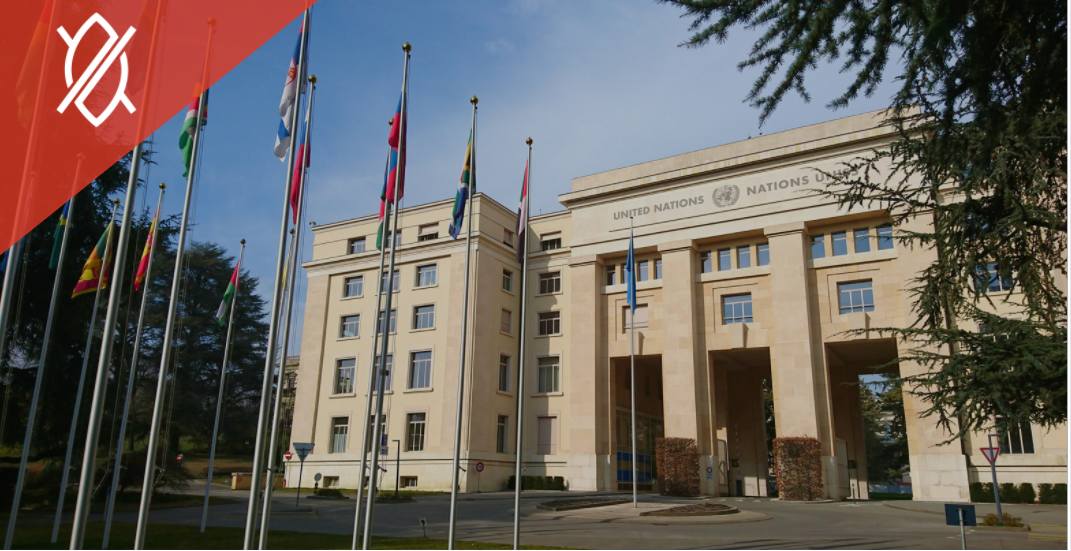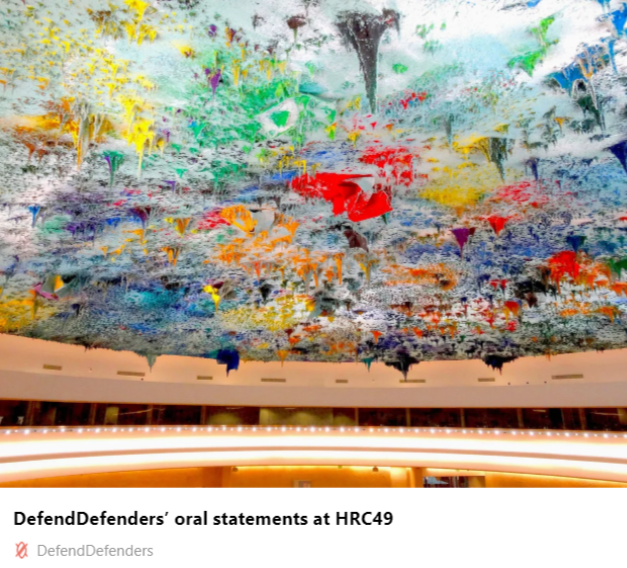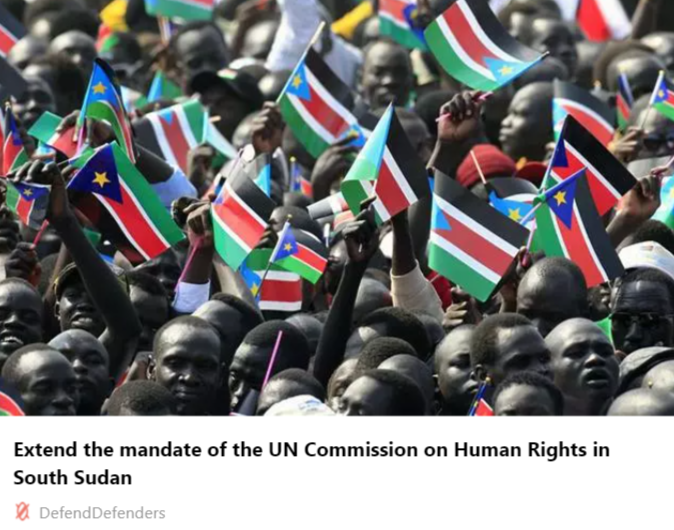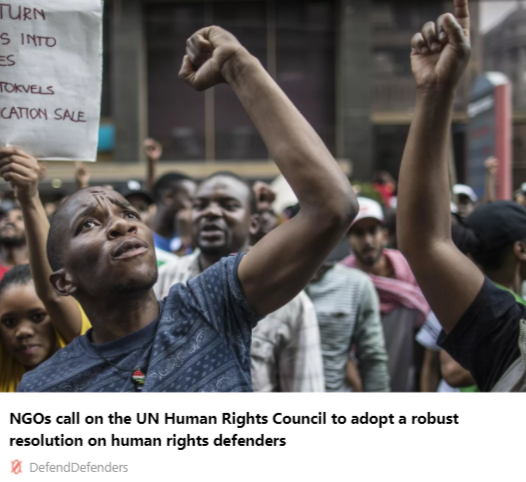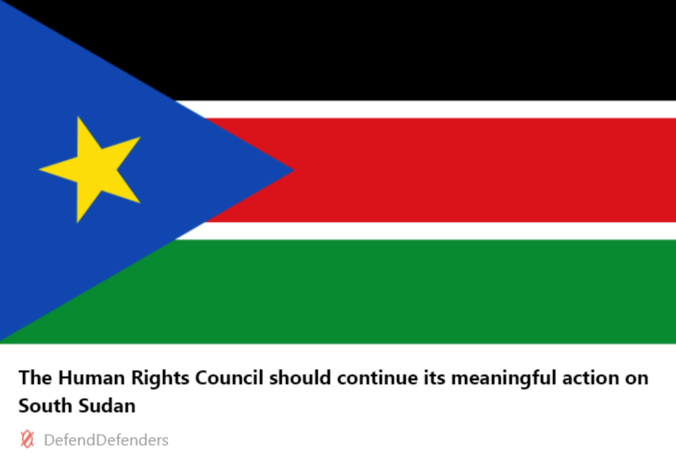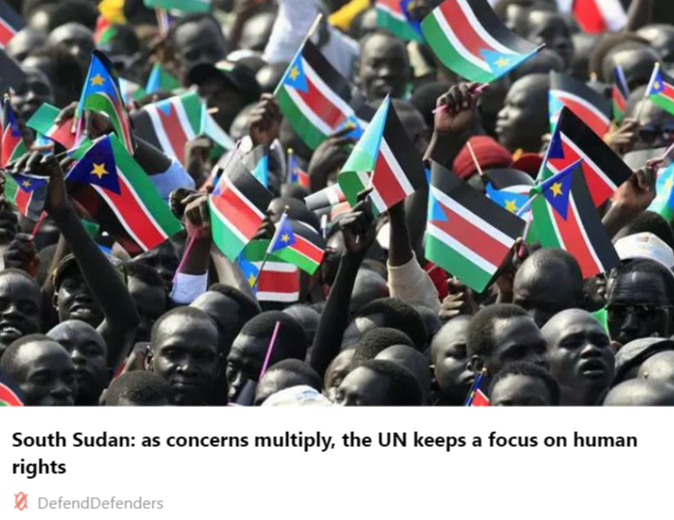This year’s “March” session of the Human Rights Council (HRC49) extended over three different months: it started in February and concluded in April (28 February-1 April 2022). With five full weeks, it was the longest session the Council ever held, which raises concerns over its ever-growing programme of work, effectiveness, and ability to follow up on all aspects of its work.
The Council, however, delivered meaningful resolutions and outcomes. While in New York, the UN Security Council was unable to act because of Russia’s veto powers, in Geneva, the Human Rights Council convened an urgent debate and established a Commission of Inquiry into Russia’s aggression against Ukraine.
With the resumption of in-person meetings, the Council also reclaimed its status as a place where all stakeholders (states, UN officials, independent experts, national human rights institutions, NGOs, and human rights defenders (HRDs) from all walks of life) can interact, both formally and informally. This is unique within the UN system.
Thanks to video statements, the last two years have brought about improvements in civil society participation, but we are glad that advocacy can finally resume in-person. For the first time since 2020, DefendDefenders supported the participation of Onesmo Olengurumwa, Coordinator of the Tanzania Human Rights Defenders Coalition (THRDC), who joined us for meetings around the Universal Periodic Review (UPR) of Tanzania. We also engaged with the government delegation led by H.E. Mr. George Sinbachawene, Minister for Legal and Constitutional Affairs.
Other HRD partners delivered oral statements by video on behalf of DefendDefenders.
On 31 March 2022, the Council adopted an important resolution on South Sudan. As concerns multiply over violence in Upper Nile and Unity states, as well as other parts of the country, we stressed that the existing investigative mechanism, the Commission on Human Rights in South Sudan (CHRSS), remains vital. Ahead of the session, DefendDefenders coordinated a civil society letter that gathered over 80 signatories, urging states to extend its mandate. Late February, in Juba, we organised a public event focused on the CHRSS, together with SSHRDN.
Unfortunately, for the second year in a row, the South Sudanese government and its allies called for a vote on the resolution. They also presented their own resolution. As the latter solely focuses on “technical assistance and capacity-building” (item 10 in the Council’s agenda), we consider that it is inadequate to address the gross, widespread and systematic human rights violations and abuses committed in South Sudan. In a short opinion piece, I emphasised that African states should support scrutiny.
The result of the vote shows that it remains difficult for African governments to support strong, non-consensual resolutions on fellow African countries. While many were uncomfortable with the weak text presented by the South Sudanese government, no African state dared to openly support the text that extends the CHRSS’s mandate. Eight abstained, though, and only five voted against.
Later this year, DefendDefenders and AfricanDefenders will publish research on how African states vote at the Human Rights Council, and evolutions since the Council’s creation, in 2006.
On the final day of the session, 1 April 2022, the Council also adopted a resolution on HRDs in conflict and post-conflict situations. The resolution addresses and incorporates suggestions civil society expressed in a letter. It sheds light on HRDs, including women HRDs (WHRDs) who operate in difficult situations. This is timely as many countries in the East and Horn of Africa and beyond, including in Ukraine, are affected by conflict.
Lastly, we urge Burundi to seize the opportunity of the appointment of a Special Rapporteur to cooperate with the Council’s mechanisms. A first step could be to invite the Special Rapporteur for an initial visit.
June 2022 will mark the Council’s 50th regular session. We will focus on Eritrea and Sudan, with a view to ensuring continued scrutiny of human rights developments in these countries and continued support to Eritrean and Sudanese HRDs.
Hassan Shire
Oral statements to the Council
Advocacy documents and press releases
Resolutions
- South Sudan (draft resolution L.15/Rev.1; resolution 49/2)
- South Sudan (draft resolution L.34; resolution 49/35)
- HRDs (draft resolution L.9; resolution 49/18)

